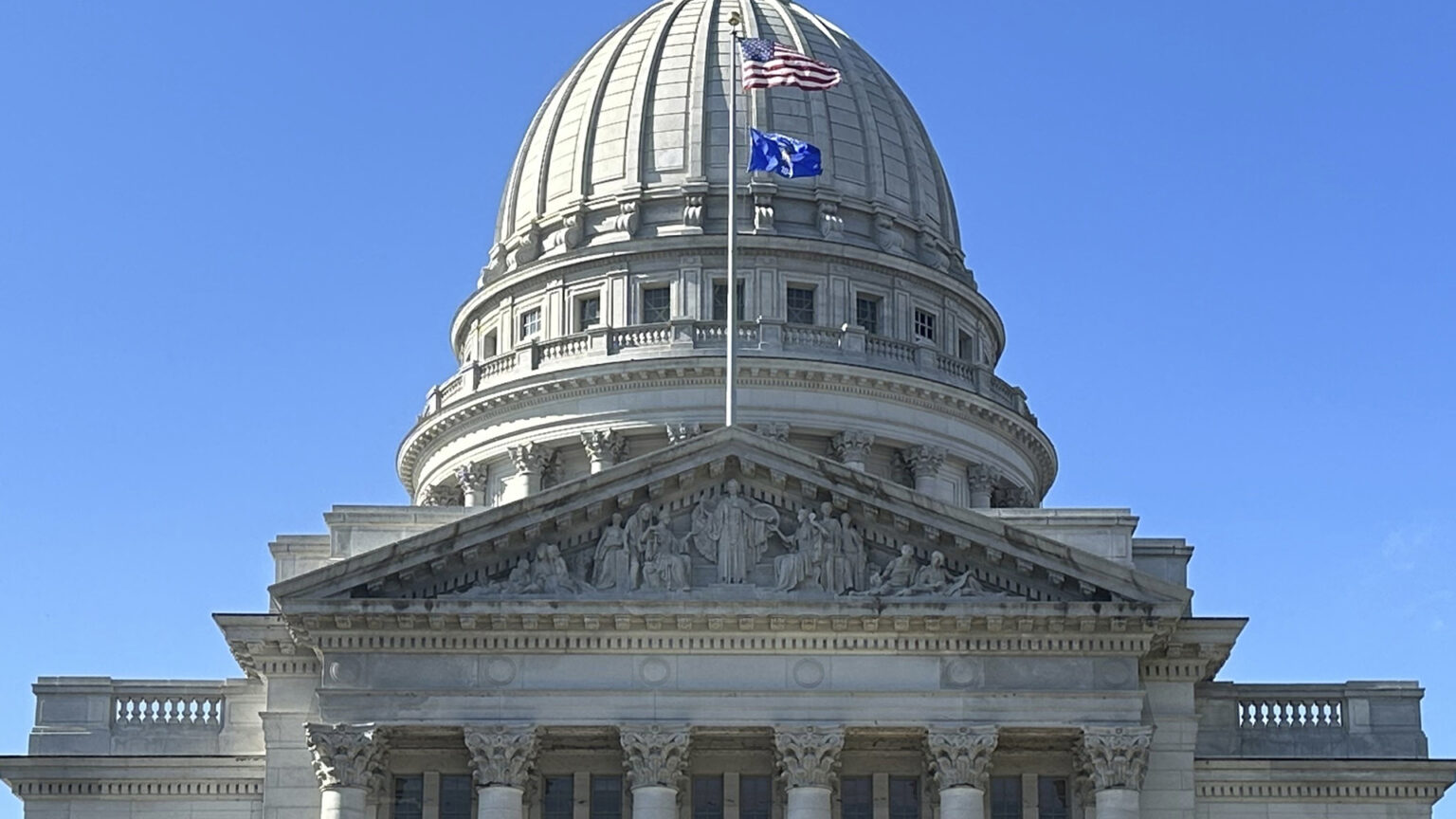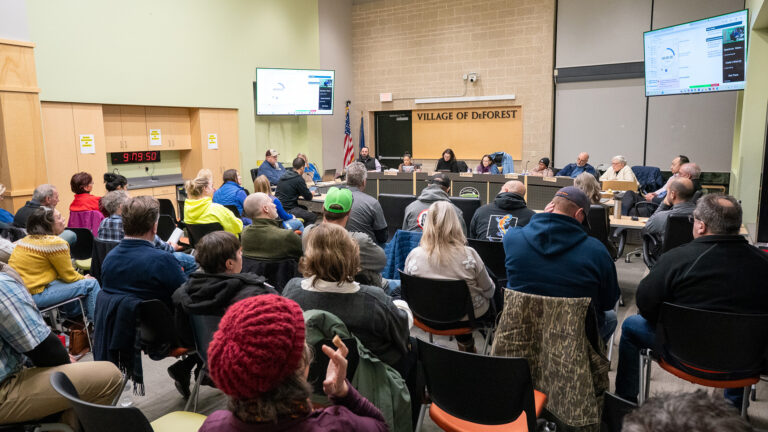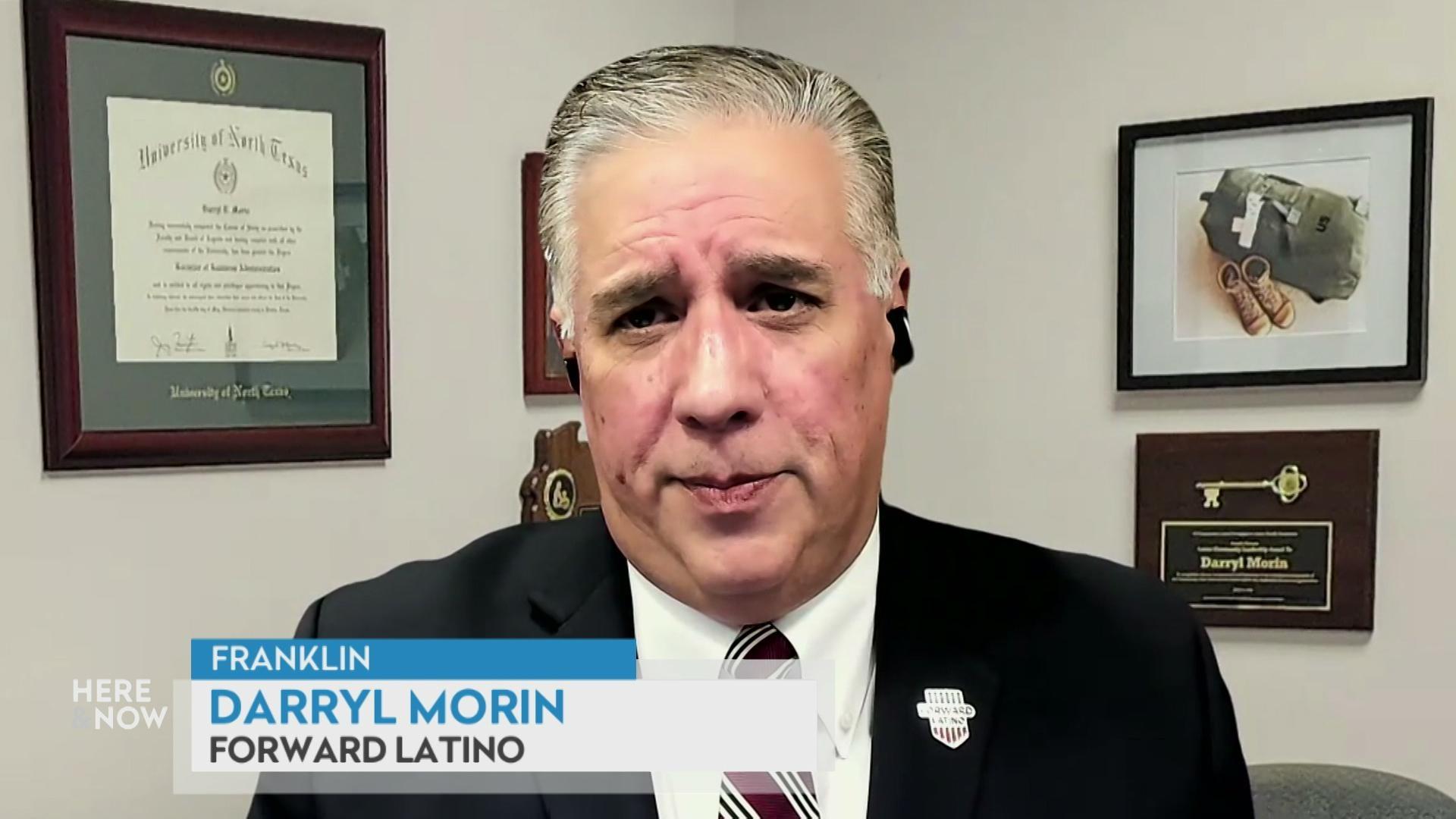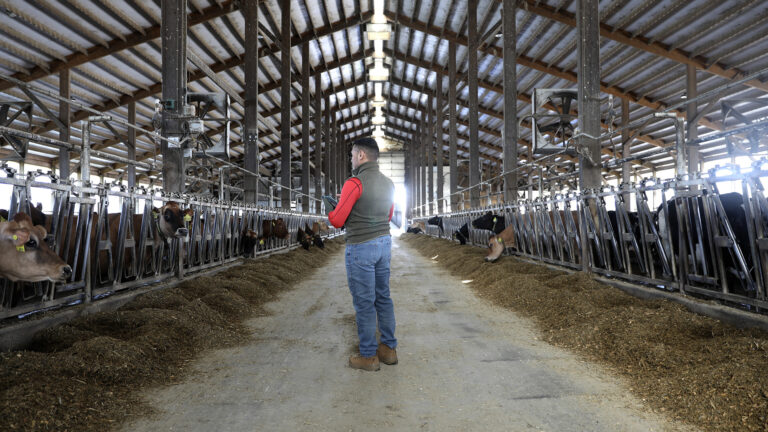Wisconsin Senate passes transgender athlete ban, judicial security bills and federal funds constitutional amendment
The Republican-controlled Wisconsin Senate held its final planned meeting day of the 2023-24 session, declining to hold votes on proposals on counting ballots and transmission lines, while passing a constitutional amendment on federal funds, a transgender athlete ban and other bills.
Associated Press
March 12, 2024

The dome of the Wisconsin State Capitol is seen on Oct. 24, 2023, in Madison. The Republican-controlled Wisconsin Legislature wrapped up its two-year session on March 12, 2024, passing a ban on high school transgender athletes competing on girls teams, but not taking up a bipartisan effort to allow for early processing of absentee ballots. (Credit: AP Photo / Scott Bauer, File)

MADISON, Wis. (AP) — Wisconsin Gov. Tony Evers renewed his promise on March 12 to veto a bill passed by the Republican-controlled Legislature that would ban high school transgender athletes competing on girls teams, saying he will be “damn proud to do it.”
Evers, a Democrat, repeated his earlier veto promise moments after the state Senate passed the measure on its final planned meeting day of the session.
“I’ll keep my promise to veto any bill making Wisconsin less safe, less inclusive and less welcoming for LGBTQ people and kids — including this one,” Evers said. “And I’ll be damn proud to do it.”
Republicans don’t have the votes to override a veto of the bill that would require that high school athletes play on teams that match the gender they were assigned at birth.
Democratic Sen. Mark Spreitzer said he was frustrated that Republicans were bringing forward the bill given Evers’ pledge to veto it and bipartisan opposition to the measure in committee. The bill will “never become law in Wisconsin” but debating it will only further harm transgender children, he said.
The Senate passed it 20-11, with one Republican joining all Democrats against.
At least 20 states have approved a version of a blanket ban on transgender athletes playing on K-12 and collegiate sports teams statewide, but a Biden administration proposal to forbid such outright bans is set to be finalized in 2024 after multiple delays and much pushback. As proposed, the rule would establish that blanket bans would violate Title IX, the landmark gender-equity legislation enacted in 1972.
Numerous other bills with bipartisan support, including one to allow for early processing of absentee ballots, were destined to die for lack of a vote.
Supporters said the early count measure would have sped up the counting of ballots on Election Day by easing the workload of election officials, particularly in Milwaukee, where the counting of ballots at a central location can go deep into the night. Former President Donald Trump and election skeptics have falsely claimed those so-called ballot dumps are the result of election fraud.
Republican Sen. Dan Knodl, chair of the Senate committee on elections, said he opposed the bill because he did not think a new process should be added in a presidential election year.
Spreitzer said the change would “put to rest complaints from conspiracy theorists,” but Republicans don’t want to do it so Trump can spread lies and complain when he loses.
The Senate also fired eight of Evers’ appointees, including two members of the University of Wisconsin Board of Regents in a dispute over diversity, equity and inclusion efforts. The Senate has rejected 21 Evers appointees since 2019. In more than 40 years prior to that, only four gubernatorial appointees had been rejected.
The Senate gave final approval to a proposed constitutional amendment that would give the Legislature final say over how the governor spends federal money that is allocated to the state. It will go before voters on the Aug. 13 primary.
Some bipartisan deals won final approval on March 12, including a measure that will ensure full staffing of an office that assists schools with addressing school safety concerns. The bill would use state money to replace federal pandemic relief funds to fund positions in the state Department of Justice’s Office of School Safety for nine months.
The Senate passed a bipartisan bill that requires the teaching of Asian American and Hmong American history lessons in school.
The Senate also sent to Evers three bipartisan bills requested by the Wisconsin Supreme Court in response to threats of violence against judges. There have been 142 threats made against Wisconsin judges in the past year, according to the Wisconsin Supreme Court Marshal’s Office.
One bill passed would make it a crime to picket, parade or demonstrate at or near a judge’s home with the intent to influence or interfere with their work. A second bill would give new privacy protections to judges to stop publication of personal information about them and their families. And the third bill would exempt a judicial security profile form from disclosure under the public records law.
Several high profile proposals that had bipartisan support were missing from the Senate’s agenda on its final meeting day.
That includes the bill to legalize medical marijuana that never got a vote in the Assembly.
Also not scheduled for a vote was a bipartisan measure that would limit competition among companies constructing power lines.
The bill, one of the most heavily lobbied this session, would give utilities already doing business in Wisconsin the first refusal on new power line projects. That would mean the state’s three existing owners of transmission lines would not have to compete with out-of-state companies when building onto their existing lines.
Opponents fear adopting the law will lead to higher rates, while supporters say it would keep rates low and bolster the state’s electric grid. The Assembly passed it, but it must also clear the Senate before it would go to Evers.
 Passport
Passport











Follow Us